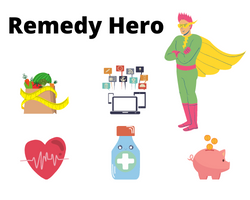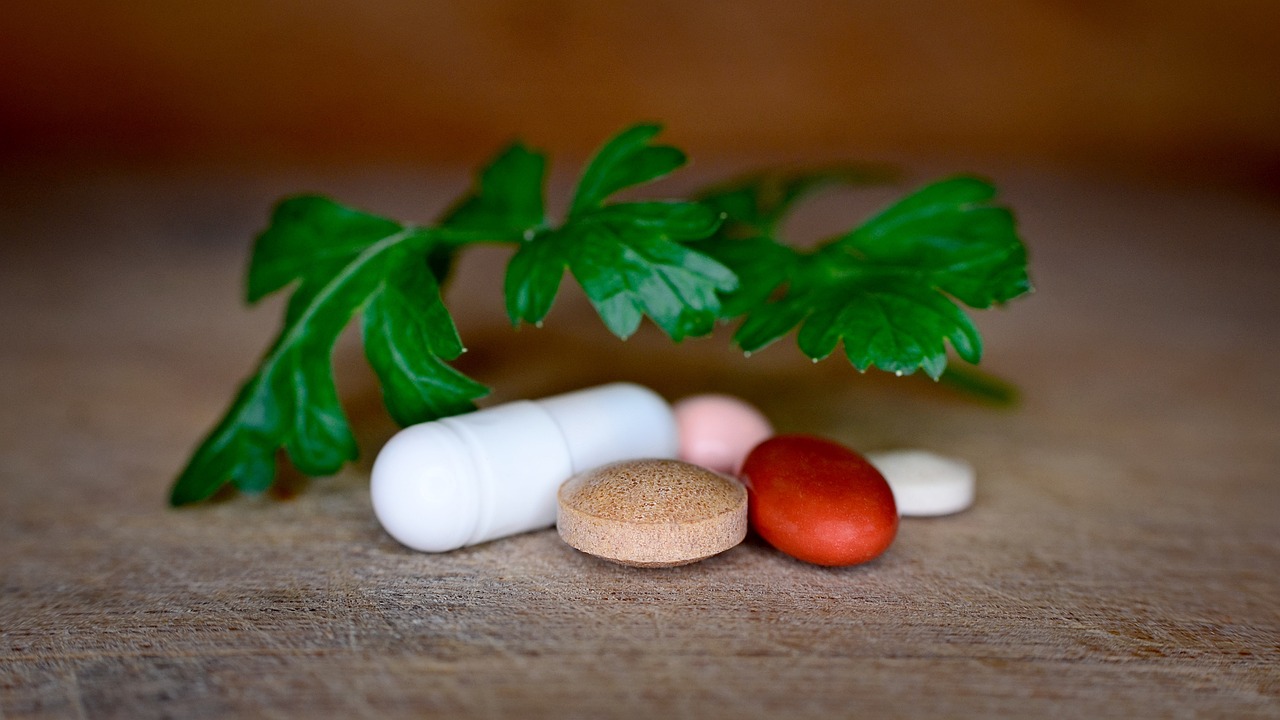Top Supplements for Heart Health: Boost Your Cardiac Wellness Naturally
Maintaining a healthy heart is crucial for your overall well-being. Incorporating the right supplements can play a key role in supporting your cardiovascular health and reducing the risk of heart disease. Whether you’re looking to manage cholesterol levels or improve blood circulation, certain nutrients can make a difference.

With so many options available, it can be tough to know which supplements are truly effective. In this blog post, we’ll explore the top supplements for heart health that you may want to consider adding to your routine. You’ll find helpful information that can guide you toward making better choices for a healthier heart.
From natural ingredients to lifestyle tips, we’ll provide you with insights to empower your health journey. Get ready to discover how small changes can lead to big benefits for your heart.
Key Takeaways
- Heart health can greatly benefit from specific supplements and nutrients.
- Lifestyle choices are important for maintaining cardiovascular well-being.
- Understanding supplements can help you manage heart disease risks effectively.
Understanding Heart Health
Heart health is vital for your overall well-being. It plays a major role in preventing heart disease and managing factors like cholesterol levels and blood pressure. Focusing on diet and regular exercise helps strengthen your cardiovascular system.
The Role of Diet and Exercise
A healthy diet is key to heart health. Aim for a balanced diet rich in fruits, vegetables, whole grains, and lean proteins. The Mediterranean diet is one great option, emphasizing healthy fats like olive oil and nuts.
Limiting saturated fats, added sugars, and processed foods lowers cholesterol and reduces your risk of heart disease. Weight management is important too; carrying excess weight can increase blood pressure and cholesterol levels.
Regular exercise is essential for a healthy heart. Aim for at least 150 minutes of moderate aerobic activity each week. Activities like brisk walking, cycling, or swimming can improve your heart’s efficiency. Don’t forget strength training, which can also help you maintain a healthy weight.
Signs of a Healthy Cardiovascular System
A healthy cardiovascular system shows several positive signs. You should have normal blood pressure levels, ideally around 120/80 mm Hg. Make sure your cholesterol levels are in check too, with LDL (“bad”) cholesterol staying low and HDL (“good”) cholesterol at healthy levels.
Good energy levels and stamina also indicate a healthy heart. If you can engage in daily activities without excessive fatigue, that’s a good sign. Pay attention to your body’s signals. If you experience symptoms like chest pain or unusual shortness of breath, it’s important to contact your doctor.
Avoid smoking, as it significantly harms your heart. By being proactive about your heart health, you can enjoy life to the fullest.
Essential Nutrients for the Heart
Taking care of your heart requires the right nutrients. Several key supplements can play a big role in keeping your heart healthy, including omega-3 fatty acids, magnesium, and Coenzyme Q10. These nutrients help manage cholesterol, blood pressure, and triglycerides to support your overall heart health.
Omega-3 Fatty Acids and Fish Oil
Omega-3 fatty acids are crucial for heart health. They help lower bad cholesterol (LDL) and raise good cholesterol (HDL). You can find them in fish oil, flaxseed oil, and dietary supplements. Omega-3s contain two important types: EPA (eicosapentaenoic acid) and DHA (docosahexaenoic acid).
Studies suggest that these fatty acids can reduce inflammation and lower blood pressure. They may also help lower triglycerides, another type of fat in your blood. Adding omega-3-rich foods or supplements to your diet can be beneficial. Aim for two servings of fatty fish per week, or consider a high-quality fish oil supplement.
Magnesium and Its Benefits
Magnesium is an essential mineral that helps regulate many bodily functions, including heart rhythm. It plays a role in maintaining normal blood pressure levels and can even help manage cholesterol levels. You can get magnesium from foods like nuts, seeds, green leafy vegetables, and whole grains.
If you’re not getting enough magnesium from your diet, a supplement might be useful. Low magnesium levels have been linked to high blood pressure and heart disease. Just be sure to talk to your healthcare provider before starting any new supplements.
The Power of Coenzyme Q10 (CoQ10)
Coenzyme Q10, often just called CoQ10, is a powerful antioxidant that your body naturally produces. It’s vital for producing energy in your cells, especially in the heart. Some studies suggest that taking CoQ10 can improve heart function and lower blood pressure.
You might find CoQ10 in supplements, and it’s also present in some foods like fatty fish and whole grains. For those who take statin medications, CoQ10 can help replenish levels that may drop due to the medication. Talk to your doctor about including this supplement in your routine for heart health.
Natural Supplements for Cholesterol Management
Managing cholesterol levels can be a big part of keeping your heart healthy. There are some natural supplements you might consider, like fiber, sterols, and garlic. These options can support your efforts in balancing your LDL and HDL cholesterol.
Fiber, Sterols, and Stanols
Fiber is essential for heart health. It can help lower LDL cholesterol, often called “bad” cholesterol. You can find fiber in foods like oats, beans, and fruits. Adding psyllium husk to your diet is an easy way to boost fiber intake.
Plant sterols and stanols are another great option. These compounds can block cholesterol absorption in the intestines. Look for foods that have added sterols or consider supplements. A daily intake of about 2 grams can be effective in reducing LDL cholesterol levels.
Also, including green tea in your routine might help maintain healthy cholesterol levels too. It’s full of antioxidants, which can contribute to better heart health.
The Benefits of Garlic and Red Yeast Rice
Garlic has been popular for centuries as a natural remedy. It may help lower total cholesterol and LDL cholesterol, thanks to its active compounds. Adding fresh garlic or taking garlic supplements can be beneficial for your heart health.
Red yeast rice comes from a type of fermented rice and contains natural compounds similar to those in statin medications. It can help lower LDL cholesterol effectively. You’ll find it in various supplement forms.
Keep in mind that it’s important to talk to your healthcare provider before starting these supplements, especially if you take other medications or have health concerns. Maintaining a balanced diet and staying active are key to managing cholesterol.
Supplements Supporting Blood Flow and Circulation
You may want to consider specific supplements that support blood flow and overall circulation. These supplements can help improve heart function, lower cardiovascular risk factors, and promote better cardiovascular wellness.
Herbs and Amino Acids for Heart
Herbs like hawthorn have been used for years to help enhance blood flow. This powerful herb may strengthen heart function and even help with arrhythmia. Its natural properties can improve circulation and support cardiovascular health.
Amino acids also play a big role. For example, L-arginine boosts nitric oxide production in your body. Nitric oxide helps relax blood vessels, improving blood circulation. This can be especially beneficial for those looking to improve heart health.
In addition to these, olive leaf extract can also support heart wellness. It may help reduce atherosclerosis, a condition that narrows arteries, making blood flow harder.
Antioxidants and Their Benefits
Antioxidants are essential for keeping your heart healthy. They help combat damage from free radicals, which can affect blood flow and heart function.
One notable antioxidant is turmeric. This spice contains curcumin, known for its anti-inflammatory properties. Curcumin can support healthy blood circulation and may even help lower cardiovascular risk factors.
Including antioxidants in your diet may help improve your blood flow and enhance overall heart health. It’s a simple way to add some protection for your cardiovascular system.
Lifestyle Choices for a Healthy Heart
Making smart lifestyle choices can greatly impact your heart health. Effective stress management and practicing mindfulness can lower cardiovascular risks. These habits help you maintain a healthy weight, control cholesterol levels, and reduce the chance of heart failure or stroke.
Stress Management Techniques
Managing stress is crucial for your heart. High stress can raise your blood pressure and affect heart health. Here are some effective techniques:
- Exercise Regularly: Aim for at least 30 minutes of activity most days. Exercise releases endorphins, which improve mood and lower stress.
- Deep Breathing: Set aside five to ten minutes each day to focus on deep, slow breaths. This can calm your mind and reduce tension.
- Healthy Social Connections: Spend time with friends and family. Strong social support can buffer stress.
- Time Management: Prioritize your tasks. Breaking work into smaller steps can help reduce feelings of being overwhelmed.
Incorporating these methods into your daily routine can lead to lasting benefits for your heart and overall well-being.
The Importance of Mindfulness and Meditation
Mindfulness and meditation offer powerful tools for heart health. These practices can enhance your mood and lower stress levels, which in turn can reduce your risk for heart disease.
- Mindfulness Practice: Focus on the present moment without judgment. Simply observe your thoughts and feelings. This improves self-awareness and helps you respond better to stress.
- Meditation: Try meditating for even just a few minutes daily. Research shows it can reduce symptoms of anxiety and lower blood pressure.
- Regular Routine: Set a specific time each day for mindfulness or meditation. Consistency helps make it a lasting habit.
These practices not only support mental wellness but can also bolster your immune function and improve blood flow, making them excellent additions to your heart health plan.
Frequently Asked Questions
You might have some questions about the best vitamins and supplements for heart health. This section will cover what you need to know about improving circulation, maintaining heart health, managing blood pressure, and more.
What vitamins should I take for improving heart circulation?
Vitamins like Vitamin B3 (niacin) help improve circulation. Vitamin E also plays a role by supporting healthy blood flow. You can also look into Omega-3 fatty acids, which are found in fish oil, as they can enhance circulation.
What are the top supplements recommended for maintaining heart health?
Some top supplements for heart health include CoQ10, omega-3 fatty acids, and magnesium. These supplements can help support heart function and reduce the risk of heart disease. Garlic and vitamin D are also popular choices for heart health.
Are there specific vitamins that benefit both the heart and the brain?
Yes, certain vitamins can benefit both. Omega-3 fatty acids are great for heart and brain health. B vitamins, especially B6, B12, and folic acid, also support cognitive function and cardiovascular health.
Can certain supplements help in managing blood pressure for heart health?
Absolutely. Supplements like magnesium and omega-3 fatty acids can help lower blood pressure. CoQ10 may also aid in managing hypertension, contributing to better heart health.
What supplements could help with heart palpitations?
Supplements like magnesium can help with heart palpitations. Potassium and omega-3 fatty acids may also be beneficial. These nutrients support your heart’s electrical system and can stabilize your heartbeat.
Between CoQ10 and fish oil, which is more beneficial for the heart?
Both have their benefits, but it depends on your needs. CoQ10 is excellent for energy production in heart cells. Fish oil is well-known for reducing inflammation and improving heart function. It’s often good to consider taking both for balanced heart support.

